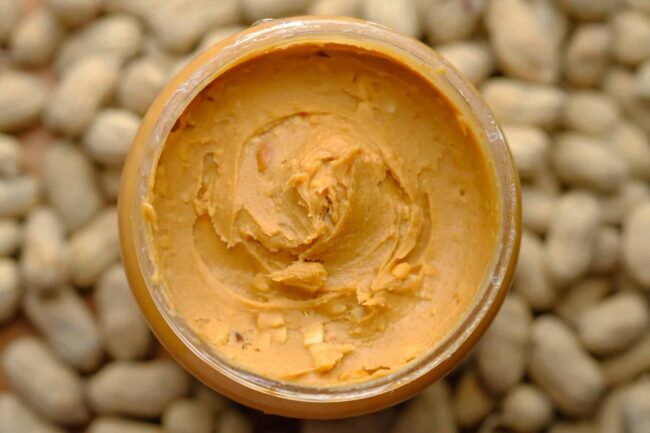Who doesn’t love a good peanut butter sandwich or a peanut butter cookie? The love for this creamy, nutrient-rich spread goes beyond borders. While we all enjoy its deliciousness, an often-overlooked question hovers in the air: does peanut butter go bad? Understanding the shelf life and storage methods of peanut butter can help you preserve its taste and nutritional value for the long haul. Armed with science and practical insights, let’s dig into everything you need to know about the lifespan and safety of peanut butter.
The Origin of Longer-Lasting Peanut Butter: A Little History
Joseph Rosefield revolutionized the world of peanut butter in 1922 with a method designed to reduce oil separation. This technique extended the freshness of peanut butter and facilitated a more even distribution of oil throughout the mixture. Rosefield’s innovation changed our perception of the shelf life of this popular spread, giving us one less thing to worry about when it comes to spoilage.

Peanut Butter’s Lifespan: Factors to Consider
Peanut butter naturally has a long shelf life due to its high-fat content and low moisture levels, creating an inhospitable environment for bacteria to grow. However, various factors can influence how long a jar will last. For instance, commercial brands often include preservatives and stabilizers, allowing the product to last between 6 to 24 months in the pantry when unopened, and about two months after breaking the seal. If you want to prolong its shelf life, keeping it in the refrigerator could be beneficial.
Natural vs. Commercial Peanut Butter
Natural peanut butter is typically less processed and must contain at least 90% peanuts. The lack of preservatives and stabilizers in these products means a shorter shelf life, making proper storage even more crucial. Some brands of natural peanut butter may incorporate stabilizers to prevent oil separation. Always consult the packaging for specific storage recommendations, including whether refrigeration is advised after opening.
Storing Peanut Butter
Storing your peanut butter correctly is key to maintaining its freshness. While refrigeration is optional, cooler temperatures do help extend its shelf life. If you’re not a fan of cold peanut butter, a cool and dark location like a pantry works just fine. The importance of tightly sealing the container cannot be overstated. Air exposure can speed up spoilage, as can cross-contamination from dirty utensils.
Identifying Safe Peanut Butter
Your senses can serve as a good gauge to determine if your peanut butter is still consumable. Look for changes in texture; peanut butter should maintain its smooth and creamy consistency. A hard and dried-out texture is a bad sign. Similarly, pay attention to the color and smell. A deeper hue or an off-putting, oxidized smell indicates that it’s time to dispose of the product. Finally, a taste test (conducted cautiously) can confirm whether the peanut butter has gone bad.
Is Peanut Butter a Healthy Choice?
Peanut butter is not just tasty; it’s also a good source of essential nutrients. A 100-gram serving provides a balanced mix of macronutrients, including 22 grams of carbohydrates, 22.5 grams of protein, and 51 grams of fats. However, while it does contain protein, it’s worth noting that it lacks the amino acid methionine, unlike animal-based proteins. Nevertheless, as part of a balanced diet, peanut butter can certainly offer health benefits.
Frequently Asked Questions
Can You Eat Peanut Butter Past its Expiry Date?
Peanut butter is generally safe to eat after its expiration date, provided it hasn’t been contaminated with water or other substances. The flavor might degrade over time, but the risk of spoilage is relatively low.
Is Peanut Butter Gluten-Free?
Most peanut butter is made from peanuts, salt, and sometimes added stabilizers, none of which naturally contain gluten. To be certain, it’s advisable to check the product label for any gluten-related allergens or consult the manufacturer.
Final Thoughts
Peanut butter is a delicious and nutritious spread that can last quite a while when stored correctly. Even though it’s generally resilient to spoilage, it’s crucial to know the telltale signs of deterioration and to understand the storage methods that will keep your peanut butter at its best for longer. With proper care, you can enjoy your favorite peanut butter dishes without worrying about spoilage, compromised taste, or nutritional loss.

Editorial Staff
Our writers, editors, content managers, and SEO specialist. We all take part in crafting amazing articles. We spend hours ensuring that each article is based on facts, researched, and thorough. You'll never want to click the back button to look for more answers other than here!
